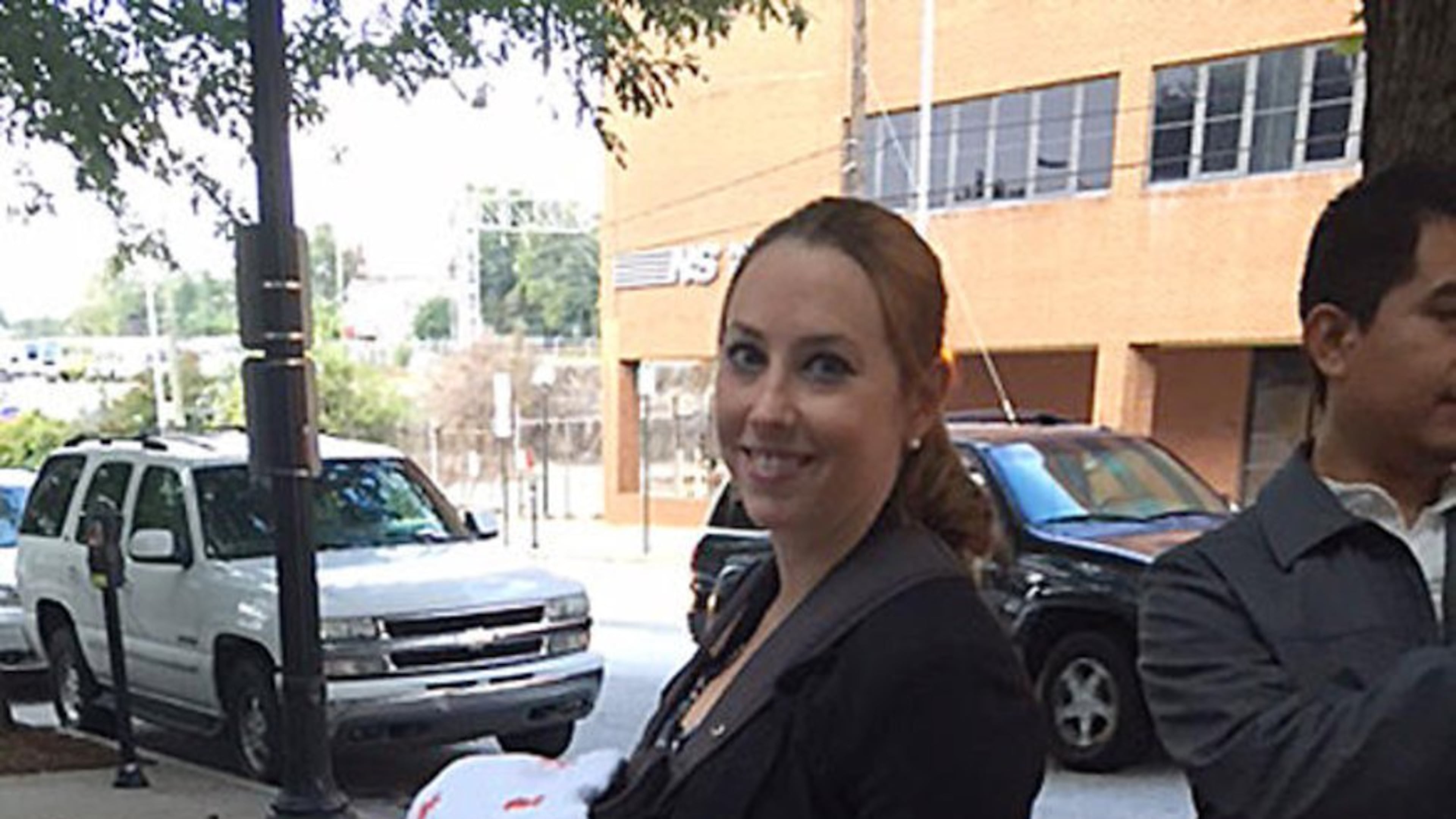Judge doesn’t take kindly to lawyer’s newborn

Lawyer Stacy Ehrisman-Mickle couldn’t get a continuance for her case, even though she was on maternity leave, so she carried her month-old daughter into a court hearing. Not a good idea when it’s Immigration Court in Atlanta.
The court is nationally known as one of the most hard-nosed and unforgiving. And Judge J. Dan Pelletier lived up to that harsh reputation, according to those in court and a complaint filed against him.
I know the feeling of last-minute terror, of work beckoning and nowhere to put your kid. Long ago, I had to attend a news conference at the Lockheed plant and it turned out our day care was closed for Good Friday. I was running late, so I took my 4-year-old daughter to the plant.
It was a bizarre day. Some 2,000 angry union workers protested outside as Lockheed’s president came to town to bless a new aircraft. Company officials saw me show up with a red-headed tot, shrugged, huddled and then put us on a bus headed inside. As reporters peppered the executive with uncomfortable questions about an impending strike, my daughter sat at the conference table nibbling Lockheed-provided cookies. I chuckled at the irony. The makers of warplanes understood parental struggles.
But I digress. Back to Ehrisman-Mickle, a new lawyer to Georgia and even a newer mother.
She and her husband moved here last year and she set up a solo practice focusing on immigration. As the summer came to a close, Ehrisman-Mickle faced the same tough work-family quandary all working women juggle. Her doctor wrote a note recommending a six-week maternity leave, and she gave birth Sept. 3 to Sayuri, which is Japanese for “Lily.”
Two months earlier, a couple teens who were among the unaccompanied minors who crossed the border this year came to her for advice but did not hire her. On Sept. 2, they attended their first court hearing without a lawyer and quickly realized that negotiating the American court system without representation is nuts. Four days later, they asked Ehrisman-Mickle, now a new mother, to represent them. She agreed but noted the next hearing was Oct. 7, still within her maternity leave. But, she added, it should be no problem, other immigration judges had granted her similar continuances. She said the court received her request on Sept. 9 and the opposing lawyer did not oppose it.
But, she said, even though her office called the court frequently, Judge Pelletier did not rule on her motion until Oct. 2. “No good cause,” he wrote. “Hearing date set prior to counsel accepting representation.”
'I was hoping she wouldn't cry'
On Friday, Oct. 3, she received the decision denying the continuance. With no family in Georgia to care for the baby and her husband out of state on his truck-driving job, she plopped the 10-pound child in one of those frontal baby carriers and went to court. Other lawyers in the packed courtroom agreed to let her cut to the front of the calender line.
“I had no idea what I was walking into; I was hoping she wouldn’t cry,” Ehrisman-Mickle said. “I was praying I’d walk out unscathed.”
Instead, she got scathed.
She said the baby started crying as she walked to the bench and the judge put his head in his hands and got noticeably angry, noting it was very inappropriate. She agreed. “I told him that’s why I asked for the stay,” she recalled in an interview.
“He questioned my mothering skills and said your pediatrician must be appalled because I’m exposing her to all these germs in the court,” she recalled.
In a complaint to the Executive Office for Immigration Court (EOIC), she wrote, “He humiliated me in open court.” She added that he turned off the audio recorder, which is a no-no.
Rocky Rawcliffe, an attorney in the courtroom, saw the timing of the baby’s bawling a little differently than mom. “I think the baby started crying once Judge Pelletier got on his roll,” said Rawcliffe, who supposes the judge wanted to move the case along quickly because the “unaccompanied minor” cases are touchy. “But his tack was unprofessional. It was 100 percent unbecoming a judge.”
Pelletier’s office referred comment to the EOIC, which had no comment, citing the complaint. Pelletier has been an immigration judge since 2006 and, before that, was a government attorney “prosecuting” deportation cases. He was also a U.S. Army Judge Advocate General.
'How can this happen in 2014?'
Lawyers and studies say Pelletier and his colleagues here are tough.
An AJC story in 2011 quoted data showing the Atlanta immigration court is among the nation’s toughest for asylum seekers, denying 84 percent of such requests, compared to 53 percent nationally. Pelletier’s rate was 88 percent.
Attorneys who appear in that courtroom were not shy about publicly complaining about Pelletier’s actions and demeanor.
“What happened there is not unusual,” said veteran immigration attorney Charles Kuck. He said other lawyers have filed complaints about this judge before to no avail. “People are stunned by this. They’re asking how can this happen in 2014? She’s a sole practitioner. All she wanted was a three-week continuance.”
Attorney Glenn Fogle, who was out in California last week, said the case is the talk of lawyers nationwide. “This is clearly way out of line,” he said. “I’m glad she filed a complaint against him. A lot of other people are scared to say anything because they have to appear in front of him.”
Ehrisman-Mickle does worry about possible retaliation but says there’s a bigger cause here.
“I’m a mother and an attorney. I shouldn’t have to give up these roles. I should be able to be both.”


